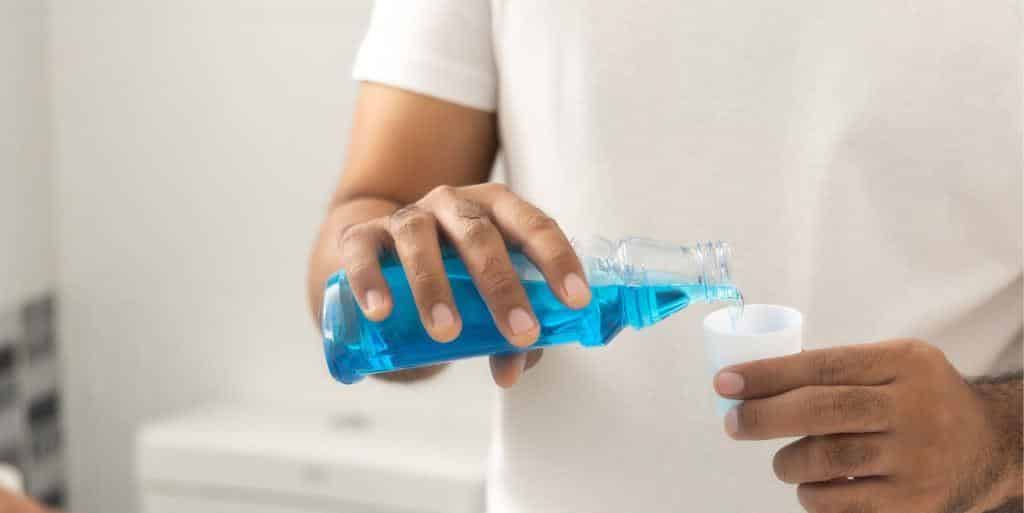Halitosis, which affects around 25% people worldwide, is caused not only by food, but also by problems with the mouth and the whole body. Therefore, do not underestimate this symptom and visit your dentist as soon as possible. And what exactly is it and, more importantly, how to treat it? We invite you to read the article.
What is halitosis?
Halitosis (Latin: halitosis, foetor ex ore- stinky breath) is a medical condition describing bad breath that can be detected in the exhaled air. There are several types:
- Actual halitosis - the result of pathological changes occurring in the mouth or body,
- pseudo-stinky breath (pseudo-halitosis) - is a condition where the patient experiences an unpleasant odour from the mouth, but no one around them can confirm it,
- Halitophobia, or fear or anxiety, of the possibility of unpleasant mouth odour. Its origins are to be found in the human psyche.
Volatile compounds such as hydrogen sulphide, dimethyl sulphide, ammonia and amino acid breakdown products produced by anaerobic bacteria are often responsible for the unpleasant odour.

Causes of halitosis
There are many reasons for unpleasant mouth odour. Most often, it is due to poor oral hygiene. Food debris lingering between the teeth rots, producing bacteria.
As a reminder, to take proper care of your teeth, it is not enough to regular brushing and flossing of teeth. Follow-up visits to the dentist are also necessary. In addition to checking the condition of the mouth, the dentist will also be able to carry out hygienization procedures. You can read more about these in "Dental hygiene in the UK - scaling, tooth sandblasting, polishing and fluoridation".
If you no longer have some or all of your own teeth, you may also struggle with unpleasant mouth odour. The reason: improper storage and cleaning of your dentures. If you want to find out how to avoid this, we recommend our text "How to care for dentures - 5 basic rules".
Halitosis can also be the result of dental problems, Among others, dental diseases, e.g. caries, pulp gangrene, periodontitis. Other causes may include reduced saliva secretion, medication and smoking.
IMPORTANT: Halitosis is not necessarily related to the oral cavity. The problem can occur in people who have diabetes, chronic inflammatory conditions of the respiratory and digestive systems and cancer.
Whatever the cause, unpleasant odour should be consulted with your doctor. Having your doctor carry out tests will give you the opportunity to treat your symptoms effectively.

How can you diagnose Unpleasant odour? How do you cure it?
To determine whether you have halitosis, your doctor will start by determining your eating habits. He or she will then measure the concentration of sulphur compounds in your exhaled air using a special device - a halitometer.
To cure halitosis, dentist must get rid of bacteria from your mouth. To do this, it removes plaque and tartar. We have already written about how to prepare for tartar removal in one of our articles. If you haven't read it yet, be sure to take a peek at this post: "Tartar removal in the UK".
Remember that the most important thing is to brush and floss regularly. If the cause of unpleasant mouth odour in your case was poor oral hygiene, it is essential to learn how to do it correctly. We have already prepared texts on this topic: "How do I brush my teeth properly?" and "How do you floss your teeth and why is it so important?". Don't skip regular dental check-ups either!
A proper diet can also help you deal with the problem. It is advisable to include more hard foods with a tooth-cleansing effect, such as carrots, celery and apples, in the daily diet. Special breath freshening lozenges are available on the market to eliminate volatile sulphur compounds responsible for unpleasant odours.

If the above advice doesn't help, perhaps the culprits are bacteria that are on your tonsils. Here, your dentist will then refer you for the appropriate tests and choose the right treatment.
It may be the case that dental treatment will not have the desired effect. A blood test, endoscopic urinalysis and ultrasound will then be necessary. Remember - halitosis can have many causes.
Make an appointment to see your dentist.
If unpleasant breath, i.e. halitosis, has become your bane and you cannot function properly because of it, and it lowers your self-esteem, it is essential to see a specialist. A correct diagnosis will help to effectively combat the symptoms of the disease. If you are looking for a Polish dentist in Birmingham, you can make an appointment right now!

